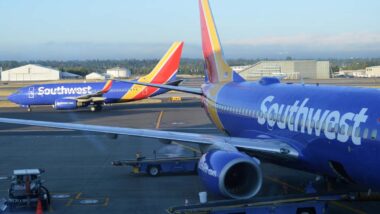Top Class Actions’s website and social media posts use affiliate links. If you make a purchase using such links, we may receive a commission, but it will not result in any additional charges to you. Please review our Affiliate Link Disclosure for more information.
A Lyft driver recently filed a class action lawsuit alleging that employees are wrongfully denied sick leave during the coronavirus outbreak.
According to plaintiff Cassandra Osvatics, the rideshare company violated D.C.’s 2008 Accrued Safe and Sick Leave Act by denying paid sick leave to her and other drivers despite the ongoing pandemic. D.C.’s sick leave law was enacted to protect workers from having to chose between their health and financial security with the assurance of paid sick leave.
However, Lyft allegedly denies their drivers this safety net – forcing them to bear financial hardship or drive passengers even if they are concerned about being sick with the coronavirus.
“Given the current COVID-19 pandemic, which some experts predict could last for years, the need for paid sick leave is vitally important,” Osvatics argues in her Lyft driver class action lawsuit.
Lyft allegedly denied their drivers sick leave by classifying them as independent contractors. Unlike employees, independent contractors are not provided the same guaranteed wages and benefits under federal or state laws.
Despite this classification, Lyft reportedly keeps tight control over their drivers which has been the subject of several class action lawsuits in the past.
Amidst the coronavirus, when Lyft drivers are struggling with an increased risk of contracting the virus from their many passengers, the company allegedly fails to support their drivers and instead takes advantage of their independent contractor status.
Although Lyft has maintained that they are providing sick leave to drivers during the coronavirus outbreak, Osvatics challenges this assertion.
“Though [Lyft] has claimed to provide paid sick leave to its drivers during the pandemic, the policy has been criticized as ‘illusory’ and a ‘bait and switch,’” the Lyft driver class action lawsuit notes.
“Lyft’s vague and limited paid sick leave does not comply with the ASSLA because it only covers ‘drivers diagnosed with COVID-19 or put under individual quarantine by a public health agency — [for] an amount determined by the driver’s previous activity on the Lyft platform.’”
Osvatics seeks to represent a Class of consumers who worked as a Lyft driver in D.C. for at least 90 days since the rideshare company first started operating in the area.
On behalf of herself and these drivers, the plaintiff seeks a court order requiring Lyft to provide sick leave to drivers. Other relief sought by the plaintiff includes statutory damages, punitive damages, compensatory damages, other monetary relief, interest, court costs, and attorneys’ fees.
Lyft has denied the allegations against them. The company maintains that their classification of drivers as independent contractors is fair and that they are providing relief to their workers during the coronavirus outbreak.
“Lyft is committed to helping drivers during the pandemic, which is why we’re providing funds to those who are diagnosed with COVID-19 and helping drivers access federal relief that includes paid sick leave,” the rideshare company said in a statement to Law360.
However, counsel for the plaintiffs clapped back at this statement when speaking to Law360. According to Class counsel, it is difficult for Lyft drivers to get relief from the fund mentioned by the company.

Paid sick leave should be a basic benefit for D.C. drivers, according to the plaintiff.
“This is a national issue, because ride-share companies are not providing sick leave anywhere,” Class counsel said in a statement to Reuters. “You want drivers to stay home when they’re sick, so when you hop in a Lyft car you won’t get sick.”
This is not the first time Lyft has faced legal action over a lack of sick leave during the coronavirus outbreak. In March, a Lyft driver filed an affidavit in a 2019 lawsuit stating that he is concerned about “passing the coronavirus on to [his] riders” but feels that he cannot take time off due to a lack of sick leave. Uber also faces similar allegations from drivers who claim that they deserve more benefits.
Are you a Lyft driver who has been negatively impacted by the coronavirus outbreak? Tell us your story in the comments section below.
Osvatics and the proposed Class are represented by Sally J. Abrahamson, Mikael A. Rojas, Pooja Shethji and Christopher M. McNerney of Outten & Golden LLP.
The Lyft Driver Class Action Lawsuit is Cassandra Osvatics v. Lyft Inc., Case No. 1:20-cv-01426, in the U.S. District Court for the District of Columbia.
Join a Free Coronavirus Class Action Lawsuit Investigation
If you believe your rights were violated in a way that is directly related to the coronavirus pandemic, you may qualify to join this coronavirus class action lawsuit investigation.
ATTORNEY ADVERTISING
Top Class Actions is a Proud Member of the American Bar Association
LEGAL INFORMATION IS NOT LEGAL ADVICE
Top Class Actions Legal Statement
©2008 – 2024 Top Class Actions® LLC
Various Trademarks held by their respective owners
This website is not intended for viewing or usage by European Union citizens.
















One thought on Lyft Faces Lawsuit After Denying COVID-19 Sick Leave
I’m a Lyft driver who was denied